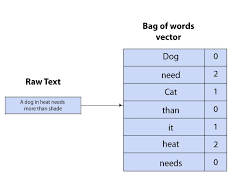Salesforce Data Governance Best Practices
Salesforce provides a centralized platform for managing customer relationships, but without proper data governance, the system can quickly become unmanageable. Data governance ensures the accuracy, security, and usability of the vast amounts of information collected, helping teams make better decisions and maximizing the value of Salesforce investments.
By establishing robust processes and policies, organizations can maintain clean, compliant, and reliable data. Here’s an overview of data governance in Salesforce, its importance, and strategies to implement it effectively.
What Is Data Governance in Salesforce?
Data governance in Salesforce refers to the practices that monitor and manage data accuracy, security, and compliance. Proper governance ensures your Salesforce data remains trustworthy and actionable, avoiding issues like errors, duplicates, and regulatory violations.
Key Components of Salesforce Data Governance:
- Ownership: Assign responsibility for managing specific datasets.
- Quality: Ensure data is accurate, complete, and up to date.
- Compliance: Align with regulations like GDPR and industry standards.
- Security: Safeguard data against breaches and unauthorized access.
Strong governance enables organizations to make informed decisions and unlock Salesforce’s full potential.
The Impact of Data Governance on Decision-Making
Accurate and well-governed data empowers leaders to make strategic, data-driven decisions. With clean and current records, organizations can:
- Identify trends and market dynamics.
- Detect potential issues early.
- Enhance planning and risk assessment.
Good governance ensures data integrity, leading to smarter decisions and improved business performance.
Principles of Effective Salesforce Data Governance
Building a strong data governance framework starts with these core principles:
1. Data Ownership
Assign clear ownership of datasets to specific individuals, teams, or departments. Owners are accountable for maintaining data quality, ensuring compliance, and resolving issues efficiently. Benefits include:
- Enhanced accountability and communication.
- Improved data quality and regulatory compliance.
- Faster issue resolution and reduced misunderstandings.
2. Monitoring and Compliance
Conduct regular audits to ensure data accuracy, detect unauthorized access, and maintain compliance with regulations. Tools like Salesforce’s built-in monitoring features or third-party solutions (e.g., Validity DemandTools) can streamline this process.
Audit checks should include:
- Data accuracy and completeness.
- Regulation compliance.
- Security and access controls.
Consistent monitoring safeguards sensitive data and avoids costly fines, particularly in heavily regulated industries like healthcare and finance.
Steps to Develop a Data Governance Strategy
- Define Objectives: Set clear goals, such as improving data quality, ensuring compliance, or enhancing security.
- Identify Stakeholders: Form a governance committee with representatives from relevant departments, including IT and Salesforce admins.
- Assign Responsibilities: Clearly define roles for data ownership, quality assurance, compliance, and decision-making.
- Develop Policies: Document standards for data entry, retention, and access. Ensure everyone is educated on these procedures.
- Implement Quality Controls: Use tools like duplicate management and validation rules to maintain high data standards.
- Set Up Monitoring: Track usage and compliance with regular audits.
- Train Teams: Provide ongoing education to keep all users informed of best practices.
- Use Metrics: Measure success through metrics like error rates, compliance scores, and cost savings.
- Evaluate and Update: Periodically review and update your governance framework to address evolving challenges.
Techniques for Maintaining High-Quality Data
High-quality data is the backbone of Salesforce governance. Apply these techniques to ensure your data meets quality standards:
- Data Entry Validation: Prevent errors by enforcing standards for input formats and required fields.
- Duplicate Management: Detect and merge duplicate records automatically with Salesforce tools or third-party apps.
- Data Audits: Conduct regular checks to identify and resolve inaccuracies or outdated information.
- Data Cleansing: Remove irrelevant or obsolete records to keep the system streamlined.
- Ongoing Education: Train users on data quality best practices to prevent future issues.
Standardizing Data for Better Governance
Data standardization ensures consistency across Salesforce records, improving analysis and operational efficiency. Examples include:
- Picklists: Create predefined field values for uniform categorization.
- Field Formatting Rules: Establish formats for postal codes, phone numbers, and other data types.
- Naming Conventions: Use consistent naming for accounts and campaigns to reduce confusion.
- Automated Tools: Use mass modification tools to apply changes uniformly.
Leveraging Data Management Tools
Data management tools are essential for maintaining data integrity and enhancing governance. Benefits include:
- Improved Data Accuracy: Automated deduplication and validation reduce manual errors.
- Streamlined Auditing: Tools enable real-time monitoring and simplified reporting.
- Enhanced Collaboration: Consistent records improve communication across teams.
By integrating these tools into your Salesforce processes, you can establish a solid foundation for data governance while boosting operational efficiency.
Final Thoughts
Effective data governance in Salesforce is critical for maintaining data quality, ensuring compliance, and empowering teams to make strategic decisions. By following best practices and leveraging the right tools, organizations can maximize the value of their Salesforce investment and drive long-term success.
🔔🔔 Follow us on LinkedIn 🔔🔔













